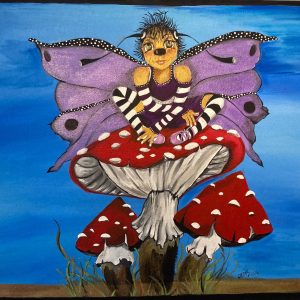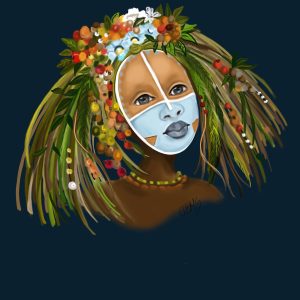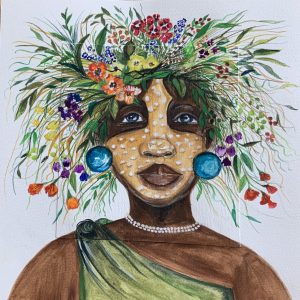Approved Land Acknowledgement Statement - January 21, 2024
We respectfully acknowledge that the land upon which First Congregational United Church of Christ sits and on which we stand is the ancestral land of the Cherokee and other Indigenous Peoples.
We recognize that we use this land at the cost of violence, oppression, coercion, removal, relocation, and broken treaties. We deplore, regret and are truly saddened by the role the Christian Church has played and continues to play in perpetuating the Doctrine of Discovery and Christendom.
We are grateful and thankful for the Indigenous Peoples’ stewardship of the land, and the wisdom, gifts, and graces they bring to the area, state, and nation.
We will continue to educate ourselves and strive to be allies with Native Peoples in the stewardship of their sacred land and resources.
We respectfully acknowledge that the land upon which First Congregational United Church of Christ sits and on which we stand is the ancestral land of the Cherokee and other Indigenous Peoples.
We recognize that we use this land at the cost of violence, oppression, coercion, removal, relocation, and broken treaties. We deplore, regret and are truly saddened by the role the Christian Church has played and continues to play in perpetuating the Doctrine of Discovery and Christendom.
We are grateful and thankful for the Indigenous Peoples’ stewardship of the land, and the wisdom, gifts, and graces they bring to the area, state, and nation.
We will continue to educate ourselves and strive to be allies with Native Peoples in the stewardship of their sacred land and resources.
Who We Are
L to R: Dorri Sherrill, Bev Reddick, Donna Miller, Alice Martin-Adkins, Horace Hunt.
Missing from the photo members: Peggy Grant and Bonnie Schell
Missing from the photo members: Peggy Grant and Bonnie Schell
Our Mission:
"Following the teachings of Jesus and believing in the power of Love, we work to dismantle systemic racism and to advocate for racial equity in our congregation and the community."
If you are interested in joining with RJT in our work, please email Donna Miller at [email protected] . All are welcome!
"Following the teachings of Jesus and believing in the power of Love, we work to dismantle systemic racism and to advocate for racial equity in our congregation and the community."
If you are interested in joining with RJT in our work, please email Donna Miller at [email protected] . All are welcome!

Racial Justice Witness from
Rev. Horace Hunt
Click on image to start the video.
"Our Civil Rights Experiences" - Diane and Vic Scott

Diane Scott, a beloved and long-time member of FCUCC recently passed away, and she and her husband Vic, who predeceased her, were both very active in civil rights work all of their lives . Below is a link that includes the details of some of these experiences.
Our Civil Rights Experiences
Community News
The Reparations Commission will soon be bringing their recommendations before the Asheville community. In preparation and support of their work the Racial Justice Coalition of Asheville is urging people to sign the "Reparations are Due Pledge" (See link below). Here is more information about the Pledge and you can follow the ongoing work of the Racial Justice Coalition at www.rjcavl.org. If you have questions or would like to talk about reparations contact Donna Miller - [email protected]
Reparations Are Due Pledge
We’re closing in on a thousand signatures, which means we still have a ways to go to reach our goal of 5,000 by July 1st. We’re writing today to ask you to help us reach that goal and ensure that real Reparations become a reality in Asheville and Buncombe County. We have a new Sharing Guide that offers a range of ways that individuals and organizations can support the Reparations Are Due campaign. We invite you to take a look and consider what actions make the most sense for you.
Reparations Are Due Pledge
We’re closing in on a thousand signatures, which means we still have a ways to go to reach our goal of 5,000 by July 1st. We’re writing today to ask you to help us reach that goal and ensure that real Reparations become a reality in Asheville and Buncombe County. We have a new Sharing Guide that offers a range of ways that individuals and organizations can support the Reparations Are Due campaign. We invite you to take a look and consider what actions make the most sense for you.
Black, Indigenous, People of Color (BIPOC)
Below is a list if local BIPOC businesses that we encourage you to support:
Click on the name to be taken to their webpages!
Black Southern Belle
Black Wall Street
Colaborative La Milpa
Hood Huggers
In His Time
Mountain Trail Soap Company
Noir Collective AVL
Sankofa Market AVL
Soulfull Simone Farm
Wheatley Construction
Yoruba Life
Your Mother’s Medicine
Other interesting & helpful links:
https://theurbannews.com - Multicultural Monthly Newspaper
https://www/rjcavl.org - Racial Justice Coalition
https://wncsocialjustice.guide - Interfaith Initiative – Social Justice Opportunities Newsletter
www.ymiculturalcenter.org/ - Young Men's Institute-Asheville
Racial Justice Team Archives
Book Study Follow-up - "My Grandmother's Hands" by Resmaa Menakem, was the focus for a May-June 2023 group study. There is a monthly check-in to follow-up with learning and exercises. Contact [email protected] if you would like to know more or participate in these activities.
Oak Street Gallery - In cooperation with the YMI and Noir Collective of Asheville, the Racial Justice team seeks to feature Black and Brown artists twice a year. Below are some photos from our June 2023 exhibit with Jerrie Settles. Click on the links below for a look at some of our previous exhibits.
|
Say Their Names July/August 2020
Heather Tolbert/Kai Lendzion May 2021 Jenny Pickens November 2021 Jerrie Settles June 2023 |
The Repairers of the Breach event that was held in the Sanctuary on 10/22/22, is posted on YouTube at https://www.youtube.com/watch?v=fZ4lMVT63Nw
|
Stay in Touch!
Call us at (828)252-8729. Our mailing address is PO Box 3211, Asheville, NC 28802. We are physically located at 20 Oak Street in downtown Asheville. |



